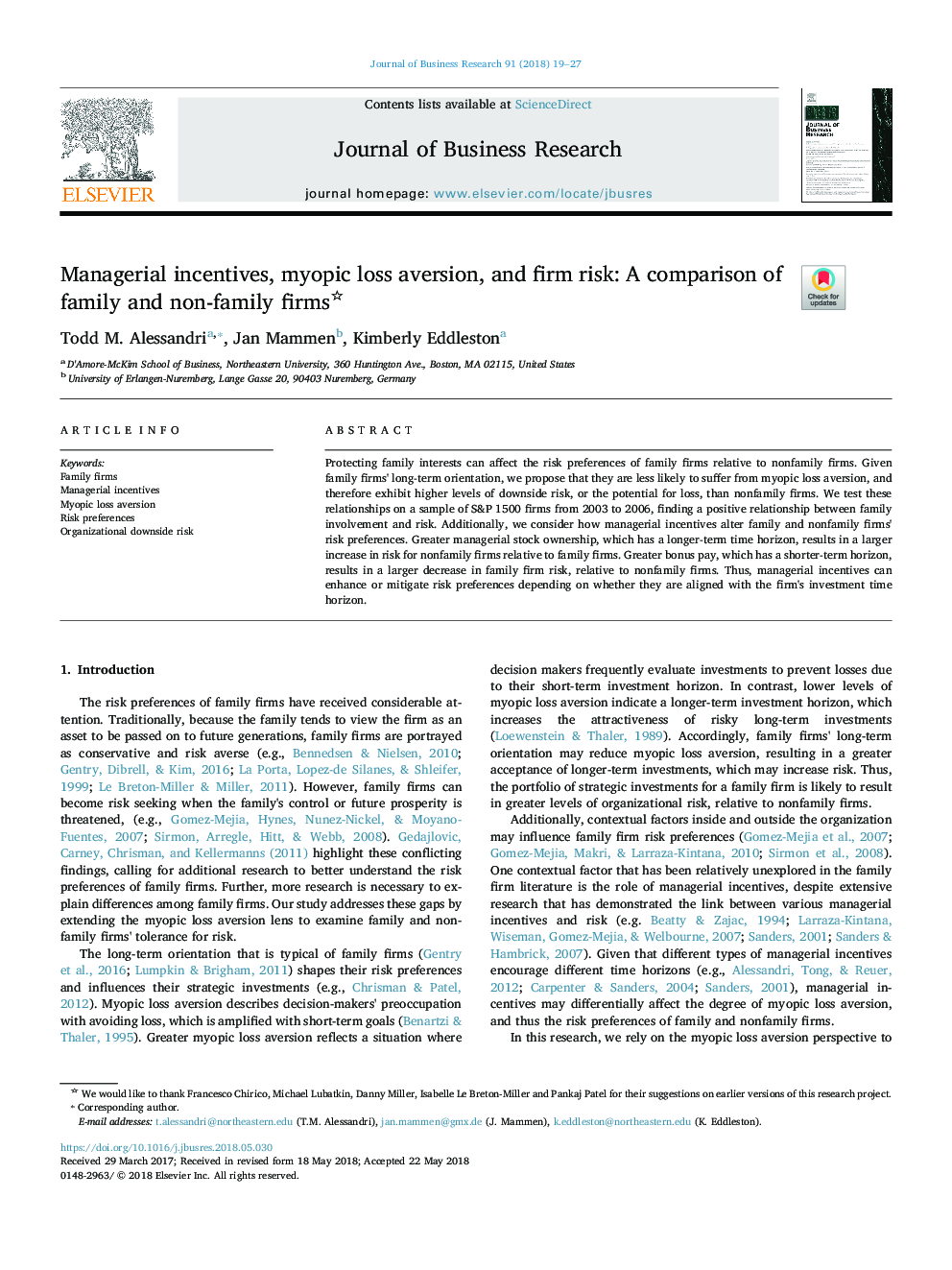| Article ID | Journal | Published Year | Pages | File Type |
|---|---|---|---|---|
| 7424859 | Journal of Business Research | 2018 | 9 Pages |
Abstract
Protecting family interests can affect the risk preferences of family firms relative to nonfamily firms. Given family firms' long-term orientation, we propose that they are less likely to suffer from myopic loss aversion, and therefore exhibit higher levels of downside risk, or the potential for loss, than nonfamily firms. We test these relationships on a sample of S&P 1500 firms from 2003 to 2006, finding a positive relationship between family involvement and risk. Additionally, we consider how managerial incentives alter family and nonfamily firms' risk preferences. Greater managerial stock ownership, which has a longer-term time horizon, results in a larger increase in risk for nonfamily firms relative to family firms. Greater bonus pay, which has a shorter-term horizon, results in a larger decrease in family firm risk, relative to nonfamily firms. Thus, managerial incentives can enhance or mitigate risk preferences depending on whether they are aligned with the firm's investment time horizon.
Related Topics
Social Sciences and Humanities
Business, Management and Accounting
Business and International Management
Authors
Todd M. Alessandri, Jan Mammen, Kimberly Eddleston,
